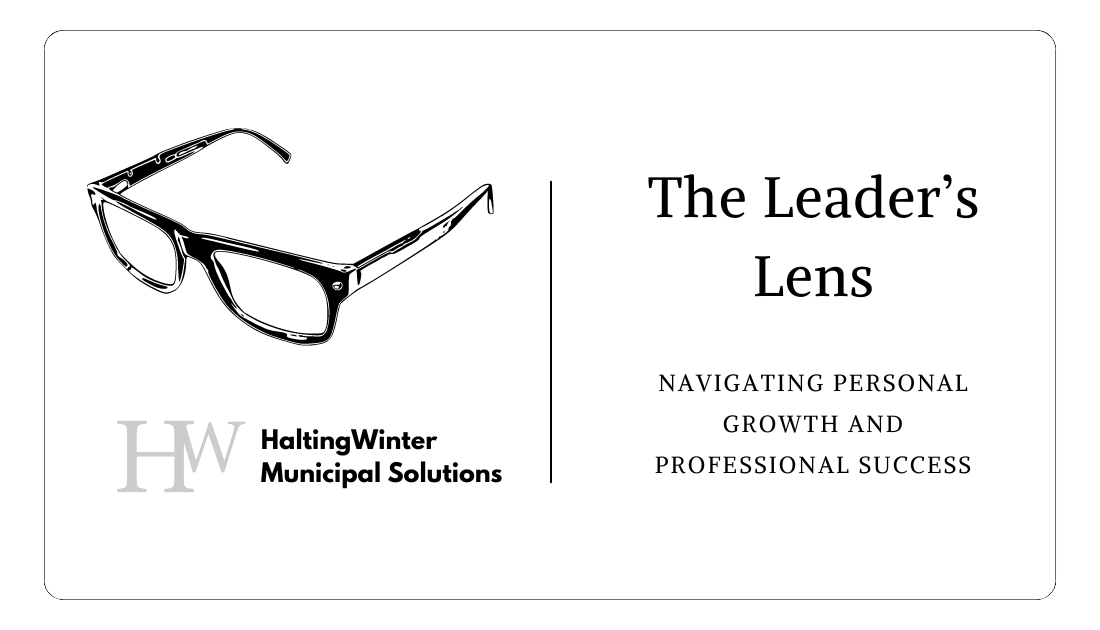Municipal Leaders: Develop Faster, Lead Stronger, Build Better

Every week, you’ll get insights and actionable steps to help you navigate personal growth and professional success.

Imagine sitting in your weekly department head meeting. Public Works is clashing with Planning over project timelines. Parks and Recreation feels overlooked in the budget process. And IT keeps mentioning how “nothing ever changes around here anyway.” Sound familiar?
As a city manager, you might be tempted to address these challenges through new policies, reorganized reporting structures, or enhanced communication protocols. But according to Connors and Smith’s “Change the Culture, Change the Game,” these surface-level solutions miss the deeper truth: organizational results flow from a pyramid of influence that begins with beliefs.
Let’s break down the Results Pyramid through a municipal lens:
Results (Top of the Pyramid)
Actions
Beliefs
Experiences (Foundation)
Many municipal transformation efforts focus solely on changing actions – new procedures, policies, or programs. But without addressing the underlying beliefs shaped by years of experience in municipal government, these changes rarely stick.
Consider a common scenario: You implement a new collaborative project management system. On paper, it’s perfect. In reality, adoption is spotty, and within months, departments retreat to their old ways of working. Why? Because you haven’t addressed the underlying beliefs: “New systems always create more work than value” or “Cross-departmental collaboration isn’t worth the hassle.”
The key to transforming your municipal culture lies in deliberately creating experiences that challenge limiting beliefs and reinforce empowering ones. Here’s how:
1. Identify Current Beliefs
2. Create Belief-Shifting Experiences
3. Model New Beliefs
When a mid-sized city’s permit department was struggling with morale and productivity, their initial instinct was to implement new performance metrics and reporting systems. Instead, working with their city manager, they started by addressing the belief that “government work is inherently slow and bureaucratic.”
They created experiences that challenged this belief: bringing in citizens to share how permit delays affected their lives, visiting a high-performing municipality’s permit department, and celebrating when process improvements made a real difference. Within six months, not only had their metrics improved, but the entire department’s culture had shifted from “that’s just how government works” to “we can make this better.”
As you reflect on the Results Pyramid and its implications for your municipality, consider these questions:
Take a moment today to write down one limiting belief you hear frequently in your organization, and design one simple experience that could help shift it. Remember, cultural transformation begins with small, intentional steps that challenge our existing beliefs about what’s possible.
Share your insights and experiences in the comments on my LinkedIn page – your story might be exactly what another city manager needs to hear.
Breaking free from limiting beliefs and reshaping organizational culture requires more than individual effort – it demands a supportive community and proven frameworks. The Municipal Leadership Development Circle (MLDC), launching January 2025, offers city managers a unique platform for belief transformation and cultural evolution.
Through our innovative program, you’ll join peers who understand the challenge of shifting deep-seated municipal beliefs. You’ll gain access to tools for identifying and transforming limiting beliefs, along with expert guidance on creating experiences that catalyze positive change in your organization.
Seth Winterhalter is President of HaltingWinter Municipal Solutions, dedicated to making stronger cities through stronger leaders. Through executive coaching, consulting, and the Municipal Leadership Development Circle (MLDC), HaltingWinter helps city managers and municipal leaders transform their leadership impact and their organizational culture.